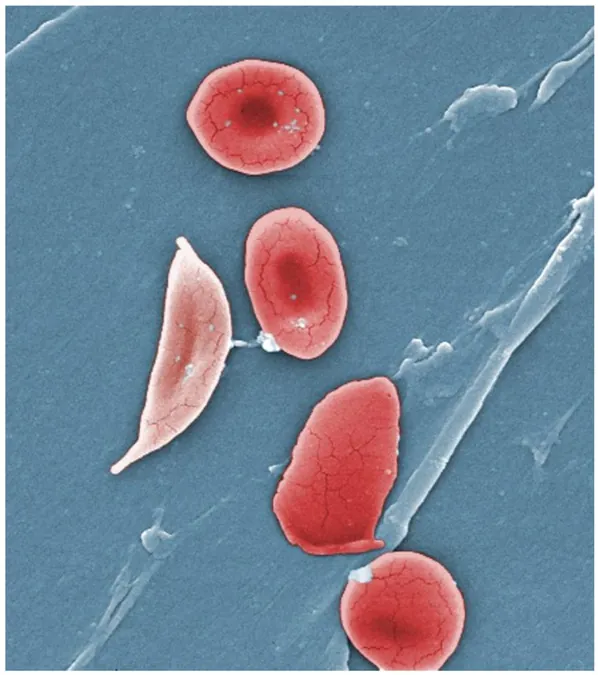
Unraveling the Mysteries of Hemoglobin SC: A Deep Dive into a Neglected Sickle Cell Disease
2024-09-26
Author: Sarah
Unraveling the Mysteries of Hemoglobin SC: A Deep Dive into a Neglected Sickle Cell Disease
Sickle Cell Disease (SCD) is more than just a painful hereditary condition; it's a complex web of genetic disorders that disrupt the body's oxygen supply. Affecting approximately 100,000 individuals in the United States and millions globally, the most recognized type of SCD is hemoglobin SS (HbSS), accounting for about 65% of cases. However, a lesser-known variant, known as hemoglobin SC (HbSC), affects roughly 25% of individuals with SCD and has been traditionally viewed as a "milder" form of the disease.
Recent research led by Dr. Julie Kanter of the University of Alabama at Birmingham challenges this comforting notion. This groundbreaking study, published in the British Journal of Haematology, sheds light on the severity and complexity of HbSC, a type often overlooked in both clinical research and treatment approaches.
Key Findings: More Complicated Than Previously Thought
Kanter's research involved a comprehensive analysis of 2,282 individuals aged between 15 and 45 years with sickle cell disease; nearly 500 of these participants had HbSC. Over a median follow-up period of about five years, researchers noticed unexpected health issues among the HbSC cohort. Contrary to the assumption that HbSC leads to less severe complications, the study revealed alarmingly high rates of depression, significant retinopathy (a serious eye condition), and avascular necrosis (bone tissue death due to insufficient blood flow). The increased severity of these symptoms indicates that HbSC patients face complications as daunting as those experienced by individuals with HbSS.
The Need for Tailored Research and Treatment
Dr. Kanter points out that the medical community has largely neglected HbSC, resulting in insufficient research and inadequate clinical trials tailored for this cohort. "There are no suitable animal models for HbSC, and crucial advancements in research continue to lag," she said. The findings suggest that to improve outcomes for HbSC patients, it's essential to enhance our understanding of this disease variant and develop specific therapies. Continuous care from specialized sickle cell clinics during childhood is critical to monitor and manage evolving complications into adulthood.
Bridging Gaps for Better Clinical Outcomes
The study does not merely contribute to HbSC knowledge; it has broader implications for all forms of sickle cell disease research. National health data networks, like the National Alliance of Sickle Cell Centers, are adopting integrated registries to promote better understanding and care across different disease genotypes, including those with HbSC. By fostering a research environment where data is shared effectively, advancements in treatment can benefit everyone with SCD.
Future Directions and Call to Action
Looking ahead, Dr. Kanter and her team are focused on unraveling the intricacies of devastating complications like multiorgan failure syndrome that frequently arise in HbSC patients. An urgent call has been made for the pharmaceutical industry to include HbSC patients in clinical trial cohorts. Historically excluded due to perceived complexities, including patients with HbSC in future trials is vital for ensuring diversified and effective treatment options.
In conclusion, as the medical community shifts its perspective on hemoglobin SC, it also opens the door to improved care pathways, targeted research, and a more inclusive approach to clinical trials – ultimately leading to enhanced life quality for those battling this misunderstood form of sickle cell disease.


 Brasil (PT)
Brasil (PT)
 Canada (EN)
Canada (EN)
 Chile (ES)
Chile (ES)
 Česko (CS)
Česko (CS)
 대한민국 (KO)
대한민국 (KO)
 España (ES)
España (ES)
 France (FR)
France (FR)
 Hong Kong (EN)
Hong Kong (EN)
 Italia (IT)
Italia (IT)
 日本 (JA)
日本 (JA)
 Magyarország (HU)
Magyarország (HU)
 Norge (NO)
Norge (NO)
 Polska (PL)
Polska (PL)
 Schweiz (DE)
Schweiz (DE)
 Singapore (EN)
Singapore (EN)
 Sverige (SV)
Sverige (SV)
 Suomi (FI)
Suomi (FI)
 Türkiye (TR)
Türkiye (TR)
 الإمارات العربية المتحدة (AR)
الإمارات العربية المتحدة (AR)